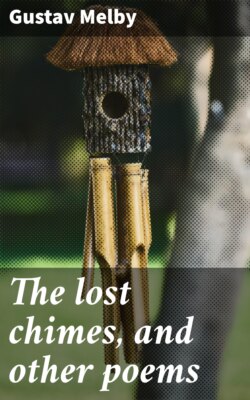Читать книгу The lost chimes, and other poems - Gustav Melby - Страница 8
На сайте Литреса книга снята с продажи.
XII
ОглавлениеTable of Contents
Why should a soul consume its power and peace
In quest of that which useless seems and vague,
In following mirages of ideals,
And pass through many harassing ordeals,
Endure the cruel sneer of mobs that plague,
When one may dwell ’mongst them in mental ease?
Why follow, like a fettered slave, one’s longing
Which sometimes leads through dun and dreary wilds,
O’er pathless hills and mountain tops afar,
And then points to a dim and distant star,
With faith a-smiling, like a little child’s,
While spectral shadows round one’s soul is thronging?
Because a gleam—as from a fiery globe—
Illumined souls before their incarnation,
And bound them with love’s chain eternally,
That Beauty’s face for ever they might see,
And ne’er be happy in their earthly station,
Unless their life in heav’n’s pure light they robe.
This gleam was ever glowing in the heart
Of him whom men might say was “lacking sense,”
The light of beauty and a smould’ring love.—
Since strait-laced folk may now his acts reprove,
And fearing this, we shall the tale condense,
Of what took place, before he did depart.
One day he met a scholar from Vienna,
Whose home was on the banks of that fair stream,
Renowned in history and minstrel’s song,
O’er whose blue waters, as they flow along,
Some olden romance hovers like a dream,
In saffron hues of terra di Sienna.
There traveled with this scholar a young woman
Whose beauty smote Sordino at first sight,
And made him captive unaware; how strange!
Since he had thought himself outside the range,
Now two score ten, ev’n of the wildest flight
Of any arrow from the little bow-man.
But such is man, who thinks, he knows himself,
And—like Sordino—very much besides,
Quite fortified by wisdom’s splendid armor,
Who thinks his heart is dead to any charmer,
Will suddenly discover that there hides
Within its chambers still a little elf.
She was a coy, elusive little creature,
Uncaptured yet by suitors manifold,
Her father’s only child, and motherless,
Whose cheerfulness his saddened heart did bless,
Whose eyes of Danube blue and hair of gold,
Commingled with her Mother’s Grecian feature.
She was proficient in the classic learning,
Read Greek and Latin like her native tongue,
Italian, too, and did on Dante dote,
And metaphysics studied, but by rote,
For mental subtleties she was too young,
And was to Hella’s songs too often turning.
Anacreon she knew by heart and set
His lyric and erotic odes to tunes,
And most of all she did with fondness love
His ἐραςμίη πέλεια—the dove
Of Venus, odorous with sweet perfumes,
Her payment for the poet’s canzonet.
And like an Amathusia she seemed,
To fond Sordino, who had ne’er beheld
Such loveliness of mind and body wed,
And then he knew that ’mid the past and dead
Of his own life, no being had compelled
His love like she whom he a goddess deemed.
But when he saw her father’s jealous care,
He did not dare his hand to tender her,
But first of all sought to ingratiate
Himself to both, but most to the sedate,
Pedantic scholar, ready to concur
In all his views, though fallacy lay bare.
Thus suavity did win the learned man,
And he became Sordino’s ardent friend,
And asked him to return with them to Wien,
Another thing he failed not to agree in,
And when their stay in Paris had an end,
He gladly journeyed with this Austrian.
